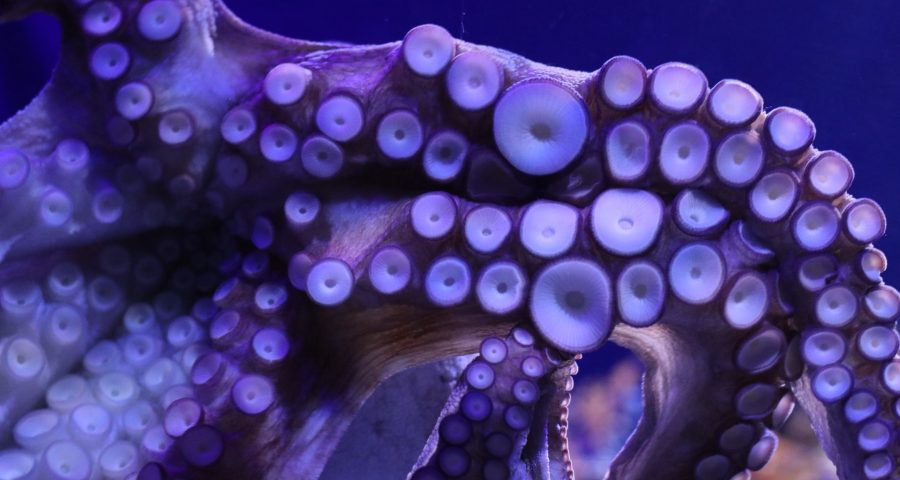Go, go, octopus arms!
This is Sandra Tsing Loh with the Loh Down on Science.
When it comes to arms, octopuses have PLENTY! Their suction-cupped arms have terrified us in horror movies. But do we really know them?
Lena Van Giesen and her team at Harvard University looked deeper.
The team found that the sucker cups have special cells working as sensors. They isolated these sensors and tested their response to the different materials octopuses normally encounter. Turns out, they responded only to those chemicals found on the bodies of their prey. When they recognize food, the cells send electrical signals to the brain.
With these sensors, octopuses can TASTE with their arms! Just like we taste food with our tongues! If the cells detect special chemicals, Voilà! Chow time. Otherwise, maybe the octopus is touching a rock and needs to keep searching.
These findings tell us more about how octopuses have evolved to adapt to their environment. This could help us protect them in their habitat.
In other news…is there sushi on the premises? Ask an octopus!
Reference:
van Giesen, L., Kilian, P.B., Allard, C.A. and Bellono, N.W., 2020. Molecular basis of chemotactile sensation in octopus. Cell, 183(3), pp.594-604.

